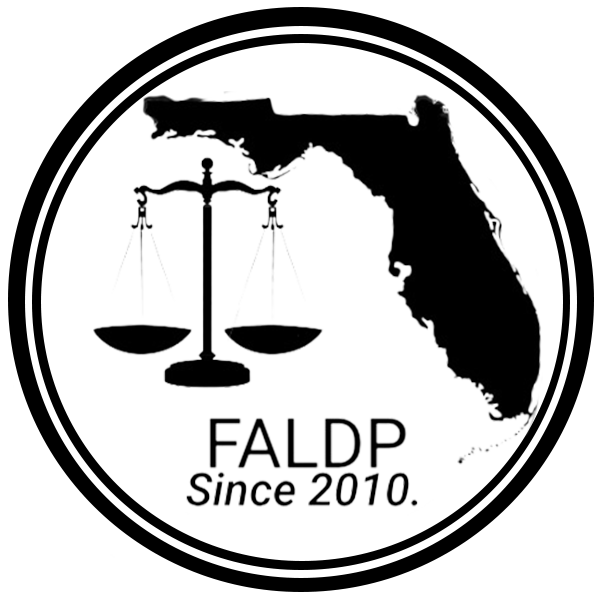800-515-0496
Landlord/Tenant Course Navigation
Eviction

During your life as a landlord, you will likely come across many types of problems. Many of your problems will occur as a result of your tenants behavior – and the effects can hurt the bottom line. Whether the issue is damage to structures, disruptive neighbors or a dispute between tenants, your response will go a long way towards the impact the issue has on your income. Experts suggest establishing clear written policies and guidelines from the very beginning. Swift and sure enforcement is the best path to correct tenant behavior.
Although tenants have the right to occupy their units without unreasonable interference from the landlord, if the tenant's behavior is affecting other tenants, the landlord generally has the authority and the responsibility to intervene. You have the right to expect tenants to respect others' right to quiet enjoyment. Specific behavior guidelines should be expressed through the lease and address noise, visual offenses and criminal activity.
Your policies and guidelines should follow federal, state and local laws; and the lease. When you prepare your policies, make sure to include necessary intermediate steps between problem/complaint and resolution, such as a notice to cure (which gives a tenant the opportunity to resolve the issue).
Common Problems
1. Handling troublesome co-tenant situations – Be very clear about who owns the problem. Explain when your tenants sign a lease that each tenant is equally and collectively responsible for lease violations – including failure to pay the rent. Clearly explain the meaning of “jointly and severally liable”.
2. Handling delinquencies and non-payment – Clearly define the due date, grace period and the consequences for late payments. In Florida a landlord may assess reasonable late charges. Make sure that late charges are clearly spelled out in the lease or rental agreement. Best practices are to charge a flat late payment fee of $25-$50. rather than a per diem fee, or a percentage of the rent.
3. Handling disputes with tenants – Most of the common disputes such as payments due, maintenance conflicts, disturbances and damage to the property should be addressed in the lease.When handling a dispute with a tenant always try to remain calm and professional. Be sure that any measures you to take are well within the provisions of the written rental agreement or lease; and any and all laws and codes.
4. Handling damage / repair issues – Damage to the property often occurs because of neglect, accident or wear and tear. If repairs are needed because of normal use of the property, then the landlord is responsible. It's important to periodically inspect the property and each unit. Some landlords change the air conditioning filters themselves for this purpose. It gives them a reason to enter monthly so that they can personally see the condition of the property. You can prevent some problems with routine maintenance. An added benefit to doing this is that you show your tenants that you are proactive, and more than willing to provide them a nice place to live. If a tenant causes damage, address the issue quickly. Immediately discuss the tenant's responsibility to pay for repairs. If a dispute arises, the landlord usually has the authority to make repairs and include repair costs as part of the rent.
Tenants Withholding Rent
Tenants may have the right to withhold direct rent payment if the space is deemed uninhabitable. Tenants deposit the rent into the registry of the court until the dispute is settled. Documentation must show the tenant made a written request to correct the deficient condition. Some examples of uninhabitable conditions may include:
- Lack of heat, light, electricity or water (unless the stoppage was due to tenant's unpaid bill)
- Lack of adequate sewage disposal
- Rodent infestation
- Lead paint hazards
- Structural defects
- Fire or health hazard
- Leaking roof
Bear in mind that some tenants will claim that the property is uninhabitable after you have served them with eviction papers for nonpayment. There is no defense for nonpayment of rent, but if the judge finds that the property is uninhabitable your eviction for nonpayment might be dismissed. And this can happen even when the tenant did not place his rent into the registry of the court. So, a word to the wise, make sure that your property is always in good repair, and address maintenance problems as quickly as possible.
Eviction
Overdue rent and violations of the lease lead to eviction. It's critically important to follow the eviction process and requirements set out in Florida Statutes Chapter 83. The most common reason to evict a tenant is for nonpayment. Most of the time, other disputes can be settled between the landlord and tenant. However, there is no defense to nonpayment of rent, except for payment.
The first step in the eviction process is the posting or delivery of a "Three Day Notice to Pay or Quit".
83.56 Termination of rental agreement.—
"(4) The delivery of the written notices ... shall be by mailing or delivery of a true copy thereof or, if the tenant is absent from the premises, by leaving a copy thereof at the residence."
It is customary to hand deliver the "Three Day Notice to Pay or Quit" directly to the tenant. If the tenant is not home, it is acceptable practice to post the notice on the front door. Delivery by certified mail is also an acceptable delivery method.
After the three days has passed and the tenant has neither paid the rent nor left the premises, a Complaint for Eviction and a Summons are prepared.
Complaint for Eviction: The landlord must file with the clerk of court the original Complaint and a copy of the Complaint for each tenant. A copy of the Three-Day Notice and a copy of the lease, are attached to each filed complaint. The Complaint must either be signed in the presence of a deputy clerk or notarized.
Summons: After the Complaint is filed and the fee paid, the Clerk will issue an Eviction Summons/Residential. A copy of the Complaint, three-day notice, and lease (if one exists) will be attached for service on the tenant.
Answer: The tenant has five days (not including Saturdays, Sundays and holidays) to answer the Complaint. If an Answer is filed and the rental payment is deposited with the clerk of court, the next step is to schedule a hearing.
Default: If the tenant does not answer the Complaint, a Motion for Default is filed. The landlord's goal is to obtain a Final Judgment for Possession and a Writ of Possession.
The Clerk enters a Default five days after the tenant was successfully served, but did not answer. Upon the default being entered by the Clerk, the Judge will then review the file and enter the Final Judgment for Possession and direct the Clerk to issue the Writ of Possession.
Most evictions for nonpayment never go to a court hearing. In Florida it is difficult to defend against an eviction for nonpayment of rent.
Writ of Possession: After the judge has signed the Writ of Possession it is forwarded to the Sheriff's Department for delivery to the tenant. The Writ demands that the tenant leave the premises within 24 hours. The sheriffs return to the property after the 24 hours has passed to evict the tenants. Most landlords change the locks immediately after taking possession of the property.


